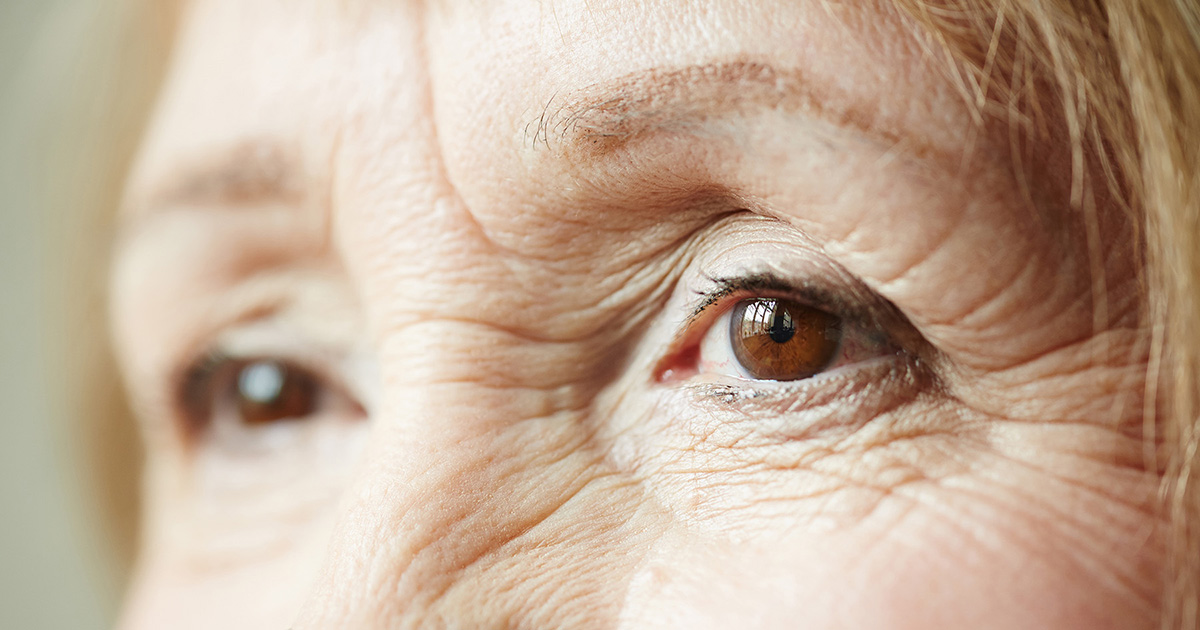Article by Tori Gwilliam, Fairfax Area Agency on Aging
(Posted 2025 September)

 This September, we observe Healthy Aging Month as an opportunity to highlight aging well. What does it look like to age well? Let’s begin with our eyes. While getting older brings about physical changes, it doesn’t have to diminish our vision. A nutritious diet supports optimal eye health, helping to preserve vision and reduce the risk of age-related eye conditions such as cataracts, glaucoma, and age-related macular degeneration.
This September, we observe Healthy Aging Month as an opportunity to highlight aging well. What does it look like to age well? Let’s begin with our eyes. While getting older brings about physical changes, it doesn’t have to diminish our vision. A nutritious diet supports optimal eye health, helping to preserve vision and reduce the risk of age-related eye conditions such as cataracts, glaucoma, and age-related macular degeneration.
Here are key nutrients and their roles in safeguarding your eyesight:
Vitamin A is vital for photoreceptors that determine quality of night vision. It also protects against dry eyes. Top sources of vitamin A include orange and red fruits and vegetables like sweet potato, carrots, cantaloupe, red peppers, mangoes, and tomatoes. It is also found in liver, eggs, and dairy products.
Vitamin E is an antioxidant that protects eye tissues from damage caused by free radicals. It is found in nuts, seeds, plant-based oils, and dark-green vegetables.
Vitamin C also serves as an essential antioxidant and plays a role in repairing and generating new tissues. It has been found to reduce the risk of cataracts. Found in many fruits and vegetables, top sources are bell peppers, citrus, kiwi, broccoli, and strawberries.
Lutein and Zeaxanthin are antioxidants beneficial in reducing the risk of age-related macular degeneration and cataracts. These antioxidants are found in green leafy vegetables like spinach and kale, as well as other colorful fruits and vegetables such as squash, pumpkin, kiwi and grapes.
Essential fatty acids (omega-3 and omega-6) have anti-inflammatory properties and help alleviate dry eyes. Omega-3 fatty acids are essential for eye development. These fatty acids have been found to reduce the risk of cataracts, glaucoma, age-related macular degeneration, as well as diabetic retinopathy. Food sources of omega-3 and omega-6 fatty acids are nuts, seeds, plant-based oils, seafood, and eggs.
Zinc is a mineral that supports the production of melanin which protects the eyes. It also supports good night vision and reduces the risk of age-related macular degeneration. Highest sources of zinc are meats, seafood, eggs, and dairy. Though zinc is also found in plant-sources like beans, nuts, and whole grains, it is less easily absorbed from these sources.
Eating a balanced diet rich in fruits, vegetables, whole grains, healthy fats, and lean proteins is essential in obtaining key nutrients for optimal eye health. Consider these practical tips for optimizing your nutrition and protecting your vision as you age:
- Boost your vegetable intake by adding carrots, peppers, spinach, kale, and broccoli to entrees, side dishes, and sauces.
- Choose a variety of colorful fruits for healthy snacks or after dinner treats.
- Add nuts and seeds to yogurt, oatmeal, and salads.
- Explore meatless meals that showcase legumes, beans, and seafood.
For additional information on nutrition and eye health, check out these resources:
- The American Academy of Ophthalmology – aao.org/eye-health/tips-prevention/fabulous-foods-your-eyes
- The American Optometric Association – aoa.org/healthy-eyes/caring-for-your-eyes/diet-and-nutrition
- The Academy of Nutrition and Dietetics – eatright.org/health/wellness/healthful-habits/5-top-foods-for-eye-health
By feeding your body with essential nutrients, you can support healthy aging and preserve your vision for years to come.
This article is part of the Golden Gazette monthly newsletter which covers a variety of topics and community news concerning older adults and caregivers in Fairfax County. Are you new to the Golden Gazette? Don’t miss out on future newsletters! Subscribe to get the electronic or free printed version mailed to you. Have a suggestion for a topic? Share it in an email or call 703-324-GOLD (4653).

